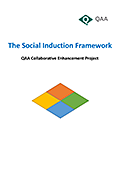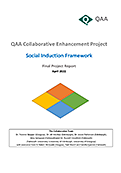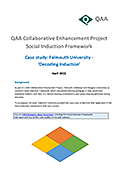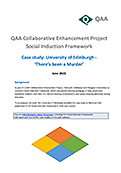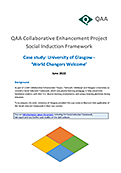About the Framework
The Social Induction Framework enables students to work alone or in groups to solve puzzles and talk to each other during induction week. It can be used to help learners familiarise themselves with in-house learning environments through a social-based
framework for engagement. In this way, course leaders will be able to incorporate educational tools or approaches available in their disciplinary and educational contexts.
Application of the Framework
The Framework is intended to provide HE colleagues with a useful and flexible toolkit for them to adopt and adapt in their own contexts. In the project report, each collaborative partner provides a case study illustrating their application of the core
social induction framework in their own contexts.
